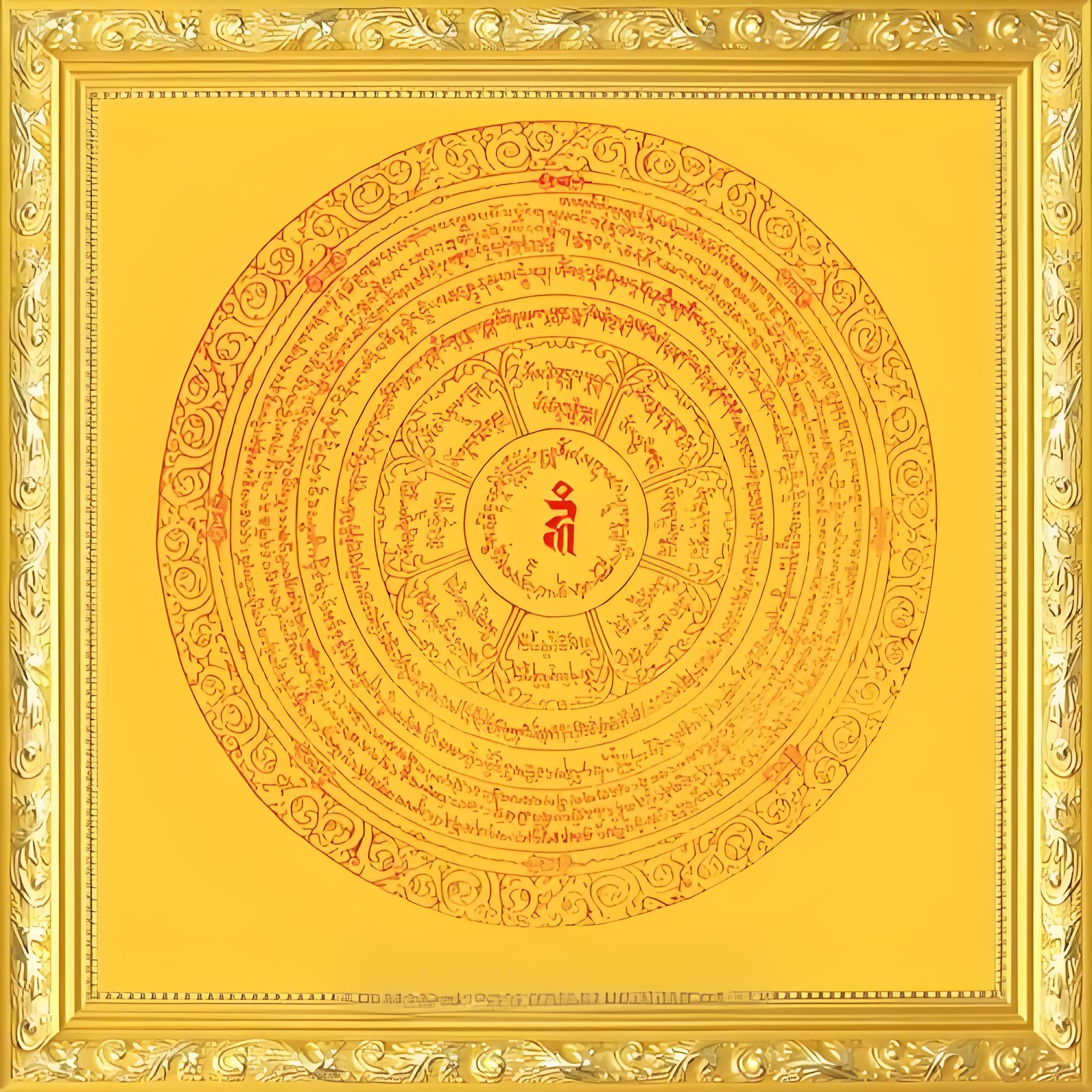In today’s fast-paced world, many chase after material possessions. Moreover, the concept of wealth often centers around accumulation of money. However, Buddhist teachings present an alternative viewpoint on prosperity. This is why the understanding of wealth is not merely confined to monetary gains. Instead, it involves cultivating inner riches and contentment. Indeed, this broader perspective acknowledges material needs while emphasizing the significance of spiritual fulfillment. True wealth arises from the balance of both aspects, thereby creating a sense of well-being and purpose. For that reason, Buddhism guides us to appreciate our present resources while remaining generous. The core message focuses on living in alignment with compassion, mindfulness, and ethical principles.
The Illusion of Permanent Abundance
Often, we associate wealth with the security that comes from having a lot of money. Yet, in Buddhist philosophy, impermanence is one of the key doctrines. Specifically, this teaching stresses that everything changes. Consequently, we realize that all our possessions, including financial resources, are fleeting. As a result, attachment to these fleeting things creates anxiety. For that reason, practicing non-attachment is paramount in Buddhism. Furthermore, understanding the impermanent nature of wealth can relieve us from clinging tightly to our riches. Moreover, the constant striving for more disappears. Through acceptance, contentment can flourish. By the same token, recognizing the impermanence of wealth liberates one from dependence on outside forces for fulfillment.
What is a Money Mantra and How Can it be Beneficial?
The idea of a “money mantra” may at first appear counterintuitive to Buddhist thought. However, it is not contradictory at all. A mantra is, at its essence, a repeated sound, word, or phrase designed to focus and transform our mind. For example, while some mantras focus on loving-kindness or wisdom, others may be utilized to influence how we relate to financial wealth. Additionally, the key difference is the intent. So, if the intent is to merely get rich, it may stray from Buddhist wisdom. But, on the contrary, a mantra focused on ethical income and generosity will align with these core Buddhist values. Further, by consistently repeating positive intentions, such as giving freely to the needy, a more constructive attitude about money will be established.
Choosing a Money Mantra with Intention
It’s really important that you approach using a “money mantra” mindfully. Because, while repetition might bring more prosperity, it won’t, if your intention isn’t grounded in values. Before adopting any affirmation or mantra, explore your deep-rooted feelings around wealth. Are they filled with fear or greed? Once explored, we need to adjust accordingly. Also, select a money mantra which highlights themes such as gratitude, generosity, and ethical earnings. One mantra example may be, “May I be prosperous so that I may bring good into this world”. You also need to focus your intention for mindful abundance that benefits others. So, a carefully considered “money mantra” helps steer focus towards financial decisions. Therefore, a “money mantra” works well as a tool in supporting one’s aspiration of enlightenment.
Mindfulness and Money Management
Mindfulness also plays a crucial role in shaping your relationship with your money. For example, bringing mindfulness to one’s financial life includes things such as being fully aware of spending habits and the reason behind them. It requires that you pause before impulsively purchasing an item and question its genuine need. Rather, reflect on the impact this spending can have. Furthermore, mindfulness supports you in staying in touch with feelings around abundance or lack. Through such practices, you are no longer reacting on autopilot. By practicing mindfulness you start making intentional financial choices based on your genuine values. Thus, you build a healthier approach toward monetary issues, aligned with buddhist teaching. Therefore, integrating mindfulness in your day-to-day dealings is highly beneficial.
The Power of Generosity and Ethical Earnings
From a buddhist perspective, how wealth is generated holds importance. Namely, engaging in unethical means, like corruption, not only is a bad financial habit but causes suffering too. Consequently, actions driven by compassion become fundamental. Also, it highlights the importance of doing no harm while earning wealth. Moreover, acts of generosity, a significant element in Buddhism, actively create prosperity. Moreover, we realize that money is for sharing instead of hoarding it, the negative energy we may be holding changes to good. Through giving freely without seeking self-gain we cultivate merit, and as such, attract good fortune. Similarly, choosing to support ethically minded businesses makes our own prosperity part of the common good. As such, sharing our wealth creates a profound and powerful way of manifesting abundance in your lives.
Integrating “Money Mantra” Practice into Daily Life
For maximum effect, consistency is the most important element of any practice. Consequently, if a “money mantra” has been identified, integrate it with morning meditations and set it as an intention at the beginning of the day. However, try incorporating the “money mantra” also in other areas like whilst going for walks or any quiet time you may have throughout the day. When an emotion related to finance surfaces such as greed or stress repeat it silently. Further, connect it with moments of conscious consumption and give thanks to the good fortune you have, even small acts such as food on your plate. Finally, through regular engagement and thoughtful practice a powerful transformative effect starts working towards more aligned money-related habits. Furthermore, patience and compassionate self awareness become essential allies as you go through this transformative journey.
Detachment and Freedom from Greed
Buddhist teachings often guide individuals to understand how to detach from greed. Although this concept seems tricky in terms of modern standards, a fundamental shift of the way in which one views their worldly belongings starts through detatchment. Furthermore, understanding that lasting happiness comes not through more accumulation of material riches. Namely, we shift from attachment to internal well-being as the foundation. Additionally, the less you feel greed, the less pressure you have to always acquire things that often have no need. Through practices of mindful spending and gratitude, an internal transformation emerges. Because the need for constant chasing after worldly things lessons as you practice this, freedom from negative feelings are the result. Therefore, liberation from the tight grip of material desire gives us more mental clarity and lasting inner satisfaction.
The True Meaning of Abundance: Internal vs. External
It’s true that financial stability helps cover basic needs. Moreover, focusing solely on outside means isn’t true abundance, rather focusing inward as well. Namely, authentic abundance arises from nurturing contentment, love, and purpose. It can also be derived by embracing wisdom, practicing mindfulness, and behaving ethically. Thus, the wealth of the internal and external working side by side, is what can give balance. Furthermore, focusing on nurturing mental strength in the long run brings contentment with what already exists, bringing feelings of peace and joy. Moreover, a well balanced perspective on money lets us become free from attachment, allowing generosity and wise spending habits to guide the journey to true well-being. So, it is not about what we have but rather who we are becoming through our choices.
The Journey towards Financial Wisdom
Ultimately, incorporating a “money mantra” in a Buddhist-guided journey is not about endless accumulation. Namely, the end goal is more profound. It centers around cultivation of genuine happiness, generosity and alignment of finances. By intentionally and consciously combining a “money mantra” together with mindfulness, one moves past old limiting patterns to build a healthier and much more peaceful relationship with prosperity. In conclusion, true financial freedom is reached through inner work as well as right intention, ethical action, and awareness that, by nature, everything is fleeting. Thus, in this journey, compassion will flourish alongside deep feelings of gratitude, allowing both wealth and enlightenment.


